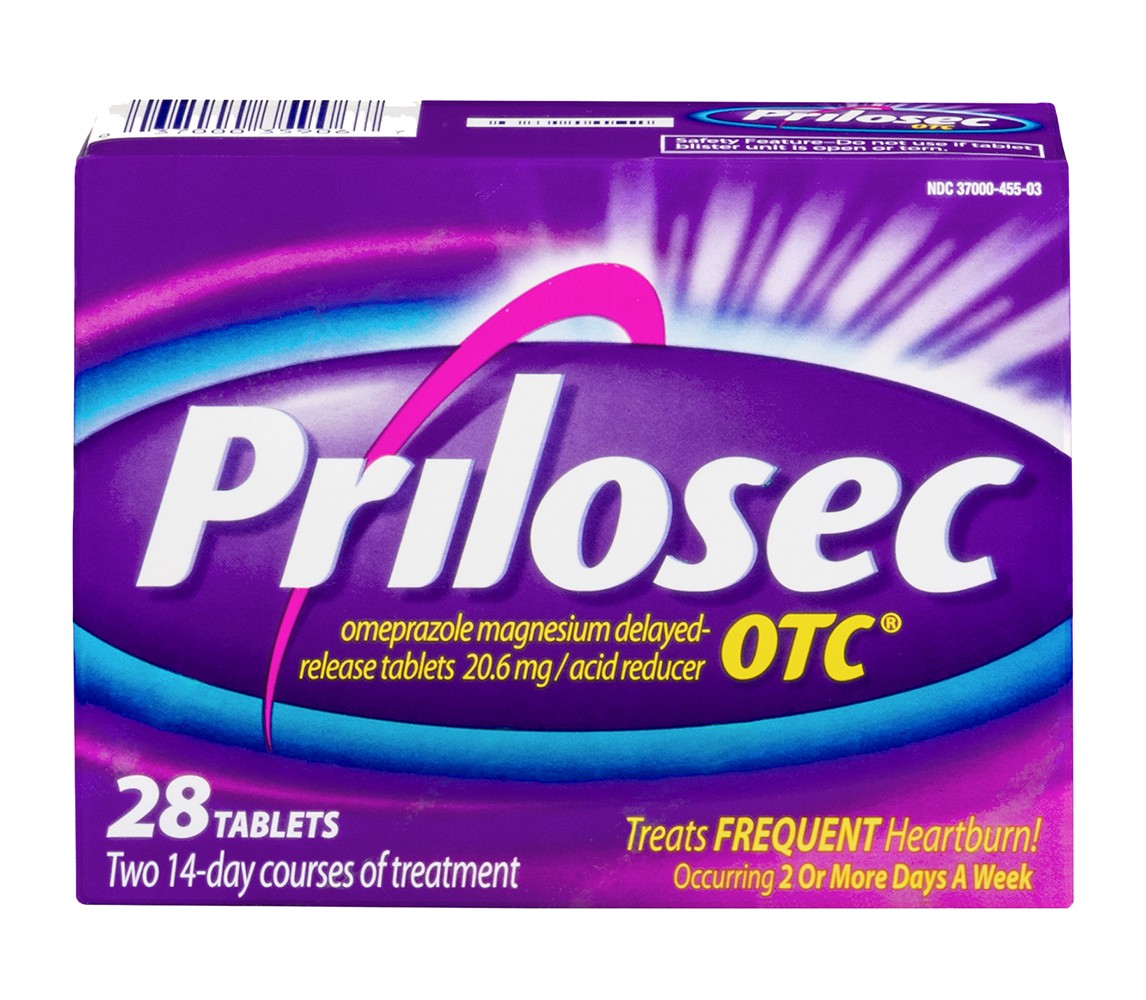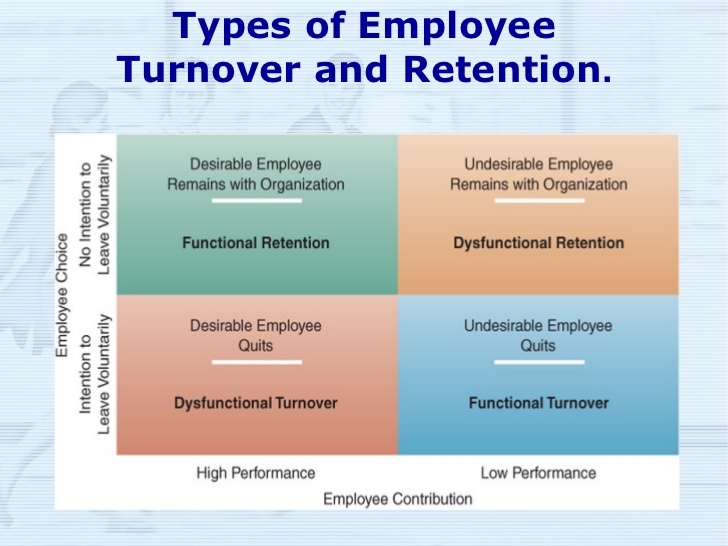It is easy to dislike any entity that puts a price point on your health, seemingly taking advance of your “inelastic demand” ie. absolute need for their product or service. However, the economic reality (the dismal science) is more nuanced than most consumers can imagine………
Imagine that your parent in their early 60s has had a heart attack. The worry and strain being unbearable. Heart attacks were rather common in the 1950s for someone in their 60s, but today it is increasingly rare. Imagine then, a parallel universe where Lipitor etc doesn’t exist? How do we quantify the benefit that such a medication has made when our parents in the 60s have NOT had a heart attack? It’s not possible. But logically, medical solutions have reduced the hidden costs that we didn’t know would have happened without them. This is the cognitive challenge you have to consider.
We should be able recognize that the benefits brought through the value creation and the value capture in the pharmaceutical industry far outweigh the negatives…
What I Learned: Pharmaceutical Companies Have More Than One Solution to Patent Lapsing Crises:
Nexium is basically a rebranding and re-patenting exercise because Prilosec’s patent was elapsing. Nexium was twice the dosage, twice the fun. If you want to grow the PPI (proton pump inhibitor) category because GEEEEERRRRDDDD!!!!, which is where stomach acid is too effective, rebrand your product and modify it slightly.
SO there are a few things you can do when your patent is elapsing. 1) re-patent: create a new version of the same product; 2) push the drug into the over the counter world.
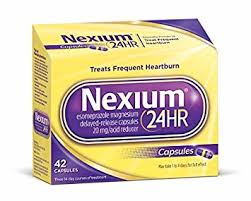 You could also move your drug to Over the Counter as eventually was the case with Nexium. You should try to squeeze (i.e. maximize) as much value out of these products as possible, just like any other industry. I also learned that GERD is a real issue (if you have heart burn more than 2 times a week) but the obvious problem being that the real disease is mixed up with a bad sandwich or a bad diet. In your marketing, you may be mixing people who need it with people that don’t. With over the counter solutions, you are relying on the individual to make the choice. Now that the drug can be bought with a prescription, the pharmaceutical company is lacks about the possible dangers of the medication. This grey area generates surplus revenue for the firm but in this case; as with many drugs, you cannot blame the doctors for mis-prescribing. From a pharmaceutical standpoint, it is nice to have some plausible deniability when it comes to selling drugs that simply inhibits stomach acid from being produced properly. Basically, a side issue is whether messing with stomach acid production is medically sound in most cases…why not create a drug for other semi-real conditions? Some drugs are created to fulfill a condition that is relatively benign…shyness for example (Paxil, Prozac, Celexa, Zolft, Lexapro, Luvox).
You could also move your drug to Over the Counter as eventually was the case with Nexium. You should try to squeeze (i.e. maximize) as much value out of these products as possible, just like any other industry. I also learned that GERD is a real issue (if you have heart burn more than 2 times a week) but the obvious problem being that the real disease is mixed up with a bad sandwich or a bad diet. In your marketing, you may be mixing people who need it with people that don’t. With over the counter solutions, you are relying on the individual to make the choice. Now that the drug can be bought with a prescription, the pharmaceutical company is lacks about the possible dangers of the medication. This grey area generates surplus revenue for the firm but in this case; as with many drugs, you cannot blame the doctors for mis-prescribing. From a pharmaceutical standpoint, it is nice to have some plausible deniability when it comes to selling drugs that simply inhibits stomach acid from being produced properly. Basically, a side issue is whether messing with stomach acid production is medically sound in most cases…why not create a drug for other semi-real conditions? Some drugs are created to fulfill a condition that is relatively benign…shyness for example (Paxil, Prozac, Celexa, Zolft, Lexapro, Luvox).
What I Learned: Over The Counter Medicine = Trusting Patients, All of The Sudden:
Another topic of debate is around whether patients should have the ability to self diagnose. Here we are asking the question of whether Claritin is something that should be over the counter when prior to 10 years ago, it was a prescription drug. I guess the key point is the market needs to be educated and overtime some patients do educate themselves about products that are prescribed. In an organic sense, those patients then will transmit their experience to non-patients who are considering using what was once a prescription drug as well. Moving from prescription and over-the-counter is a strategic move that can pay off.
I guess what we learned here is that in a career in Pharma, you should attempt to push for over the counter when it makes strategic sense to do that (when the patent has elapsed) in order to continue to extract profit from that drug without being too precious about the consumer understanding. Here, we have to just basically except that consumers have the ability to make decisions. They definitely have that ability to have the cognitive capacity to make their own choices in most cases. Perhaps patients should have to take a test to validate their understanding? Imagine if there was an IQ test to own other items such as a gun!? Could be useful none-the-less…or maybe not.
What I Learned: Nexium – Recycling is Not Reinvention:
It might look very lame that a pharmaceutical would recycle a product. This speaks to the logic of marketing as the core function of a pharmaceutical company over the still important but less so development of the scientific breakthroughs. From an economic standpoint, there is no company without marketing and distribution, no centralized government can effectively manage this at present or historically. While breakthroughs create the patient value, it is the ability to ‘capture that value’ which allows the pharmaceutical company from continuing to operate. In essence, while a new drug was a better product only slightly, observers may find reason to dislike this recycling behavior. However, this is a function of the legal system and marketing tactics. Learn them and apply them to generate both patient and corporate value.
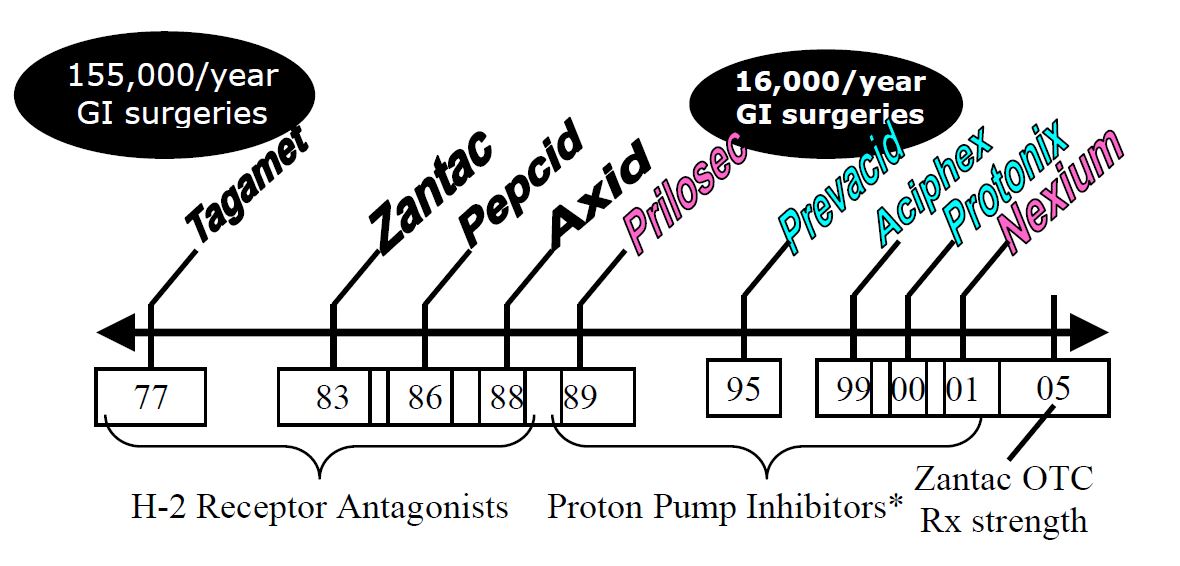
Going forward, I realize that as long as you delivering value and there is asymmetrical information amongst patients and doctors, you as a pharmaceutical company have an important role in generating value for shareholders AND patients. Being smart about recycling a product for patent reasons is critical. You need strategic vision at the top of the firm. I believe that my logic of giving a price break for Nexium (since it was a rebranding of Prilosec) was sensible and that’s what they ended up doing. So my instincts aren’t off.
What I Learned: Pharma is Lucrative in Aggregate / Variable for Individuals:
Pharmaceutical industry is rewarding on a personal level, professional level and community level, however expect to move around between companies in this industry. It is rare for a person to stay within one pharmaceutical company throughout their career. Why is that? Because trials in one of the phases does not go forward, i.e. Pfizer shutting down Alzheimer’s drug R&D or even more obviously, patents expire and depending on strategy, employees might be strung along thinking their career at PharmaX is still secure but then they get fired abruptly….
While I knew that Michael Porter’s Five Forces ‘dictates’ that the Pharmaceutical Industry is the best industry to work in on an industry level, consider the individual risks in pharma. Do my pre-MBA marketing skills make sense in this highly regulated industry? Actually, yes. Working in Pharma sounds remarkably like working in a giant media agency which is what I was doing in the UK prior to my MBA. You wouldn’t be sane if you stayed in an agency role for longer than 18 months. However, if you have say a PhD in Bio Chemistry from an Ivey league school who is “perfect” for pharma but is extremely risk averse and very particular about any mistakes or any imperfection, you might be in for a shock. Generally, scientists don’t mind invalidating hypotheses but secretly want to discover the next penicillin.
What I Learned: What Skills Do You Need to Excel (Other than Microsoft Excel)?:
Data Analytics, collaborative leadership, articulate impact and learning agility. Another skill is managing your reputation for accountability and having a passion for patients (kind of a skill). Therefore, I would say that Rotman and IBM alike all say data, data, data, data a bit too much. However, anyone with a tough real-world experience knows that data is easy to abuse, subject to skepticism and 91.5% percent of the time is a means of validating your 1 existing deductively derived hypothesis so that you don’t look like a fool and data that invalidates your hypothesis is then hidden or downplayed. Also data in some circumstances inhibits decision making…“We don’t have the data so we’re NOT going to go forward with your strategy.” Not withstanding the above, data is awesome. Collaborative leadership; I’ve seen the opposite also work. Example Steve Jobs or Jeff Bezos etc. Very much vision driven, vicious people tend to win as well. So, the key is to do something amazing to build credibility so that you can really lead people over the top in order to create and capture insane value. And if you want to slick about it say “collaborative leadership is my thing” and “patients are my passion”. These statements can be true anyway, but priorities in practice mean that you might not always be collaborative or may not always be passionate about a patient (for example in an exceptional circumstance).
 What I Learned: The Shareholders Will Dictate Internal Decision Making If They See Fit:
What I Learned: The Shareholders Will Dictate Internal Decision Making If They See Fit:
When GlaxoSmithKlein’s C-suite leadership said they were happy with having 20 drugs coming down the pipeline, CFAs and analysts with limited qualifications or knowledge of pharma felt that there were not enough new drugs. The stock market responded aggressively to GSK’s claim of being happy with a more modest pipeline of new drugs. GSK then changed its strategy, finally they evolved their thinking do declare that there were no new blockbuster drugs in the future. The issue here is that analysts effected the company, partly because the C-suite was not able to win the case that 20 drugs is good enough.
Therefore, shareholders are very powerful with publicly traded companies. If shareholders decide that they know better than management, and that R&D should be netting X number of new drugs and not 20 new drugs, then you as a manager need to sell the idea that 20 drugs is very good: you need persuasive public relations or you will be side-swiped by shareholders who think the aggregate market demand knows the optimal allocation of resources. And if you don’t like it consider going private like Dell etc. Of course, stock options are a huge incentive for employees even in the pharmaceutical industry.
What I Learned: Variable Costs versus Fixed Costs:
If a cost is sunk it’s something you will never get back. So, do not calculate your price by including fixed costs. Do not calculate your marketing price to include fixed costs.
Pricing Should Not Include Fixed Costs, But Does Include Variable Costs
This quote causes cognitive dissonance in my brain. The fixed costs are basically sunk cost in their entirety. While patents are fixed costs, and patents obviously impact price indirectly, fixed costs does not impact price. Fixed costs used to create the products, i.e. the R&D for the products are sunk costs. While you might think that the price is impacted by the costs to develop the product, you would be mistaken, even if you think it is obvious that costs are fungible and Asthma medication prices have some fixed cost baked in….you’re wrong. I always assumed that the price of any commodity includes Fixed Costs, now I’m told that reference prices and variable costs are the things that effect price. Also, ability to pay and willingness to pay are variables in pricing. The question is why is this the first time you’re hearing that fixed costs is not relevant to price?
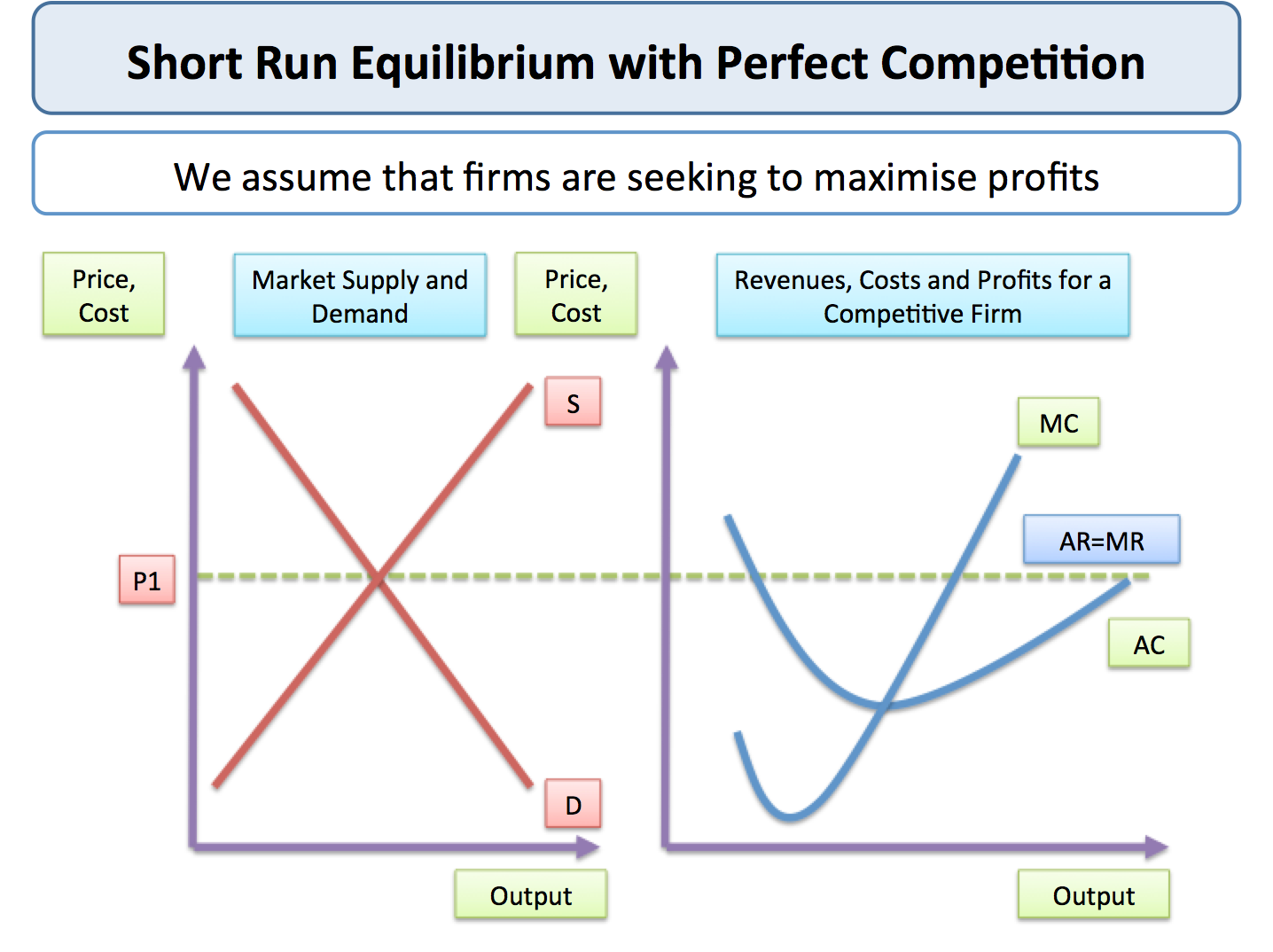
What I Learned: Price is Not About Science (Really):
This is shocker that causes cognitive dissonance: but what it means that what the drug does is not as important as how the drug ends up in people’s bodies. The point is that science is roughly 25% of the value and marketing is 75% of the value? The claim is memorable because it seems incorrect. However, getting on the Formulary via sales and marketing efforts is far more important than the fundamental function the drug has on the patient’s body because the drug would never get into the patient’s body if it wasn’t distributed, sold, marketed.
The price is not impacted by the Fixed Costs nor by the Patent which has no value in its own as it is not a trade-able commodity. The end consumer has a limited influence on the price. The science and the patient are at the core in any public conversation but in order for this business to operate successfully, the marketing, sales and distribution are at the core of the private conversation. The general public is not attuned to the inner workings of business; and the philosophical debates about morality are out of scope when it comes to successful strategy in pharma. There IS no pharmaceutical company without a serious understanding of the economic, capital intensive realities needed to create pharmaceutical products.
What I Learned: One of the 6Cs is Conscience:
This is the major concern about working in the pharmaceutical industry: conscience is an important consideration but is one of many. If the perception is that your Pharmaceutical company is abusing patients (Shkreli) and your marketing message is “F’ You! Market Forces say the price is 1000X” then that will impact shareholder value positively but you might attract even the most spine-less of politicians to criticize you. So really conscience is connected to shareholder value. Shareholder value means getting the market right not just increasing prices when you have a patent on your product; conscience/ethics/morals are a complex set of normative values to wrestle.
I would say that criticism that pharma creates value and then captures value too aggressively is a perception issue. A family friend has MS and hates the pharmaceutical industry believing that the industry is incentivized by profit to the extent that they could be repressing the cure for MS, and certainly not doing the R&D to find it and instead aim to medicate patients in order to grow a subscriber base that is dependent on these firm for the patients wellbeing. My family friend says pharma has a hand gun pressed against his head and could increase prices for medication if they liked. Taking this analogy, I would now respond that it may seem that pharma has a hand gun pointed at your head but you’re forgetting that they invented/created the hand gun/value in the first place. If you don’t take your medication then you know that you are worse off but if this 1920 (pre-invention of the drug), you wouldn’t be able to say that you are worse off without this drug so in order words, you should be happy to have a hand gun pressed against your head if it helps you lead a more productive life. In the end, the choice is yours to make as an MS sufferer. Pharmaceutical has great power because it creates amazing innovation that is extending people’s life and the quality of life (in most cases). So when they charge a high fee, it seems like “GAUGING” but with few exceptions, they are using they are creating this value and they are going to want to capture that value in order to create further value.
 What I Learned: Conscience Shifting is An Admittance of A Competitive Market Reality:
What I Learned: Conscience Shifting is An Admittance of A Competitive Market Reality:
The topic of Jack Kay (CEO of Apotex) came up; he gives away drugs! Drugs are sent to the country of South Sudan and/or given away for free, as something called a conscious shifting exercise. It’s interesting to me because we know certainly Bill Gates was ruthless against competitors such as Netscape and Apple. However after he retired from Microsoft, Bill Gates became one of the most prominent philanthropists around the world and in particular in Africa. This conscience shifting could very well be “time goodness” shifting. Conscience is one of the six C, and like an episode of Star Trek, your conscience could actually be temporal as well as in the medium term; rather than right now when you have to maximize shareholder value. In fact, you could say that successful entrepreneurs aggregate and collect as much value in the short run with the objective of giving back to the community in the long run; in some cases. Perhaps this is a method for justifying any controversial measures in business in the short term; because in the long-run you will more than compensate society.
I actually think this idea has a lot of legs, and lags. What good is being kind if you never grow to effect change at a greater scale? Because we do know that being conscience of your own actions in an industry where there is controversy is important. We need to recognize that the benefits brought through pharma far outweigh the negatives. In the long run we should however engage in conscience shifting as individuals; in order to create a society that we want to see around us. We should, for example, when we are near retirement, be willing to except a lower salary in order to cultivate future leaders within a particular field. I disagree with the idea that management at the senior level should be making the most money but rather they should be spending the most time mentoring future generations in the business. I believe that is one major challenge with the baby boomer management generation, they will not let go of power and yet they aren’t the smartest person in the room all too frequently. IQs may be degrading over time after all!!!!

What I Learned: The Intersection of Government and Pharma/Business:
I think the intersection between government and business is made very clear in Pharma: with the example of Apotex and their generic pricing being abnormally high in Canada relative to other developed countries. We can clearly see here that the government is supporting and advancing Trump/Macdonald/Tommy-Douglas-style economic nationalist interests and that we can clearly see here that the support of Pharma in the generic space has facilitated a giant factory in Vaugh etc. So, there are clearly benefits to getting close to government officials, convincing them that you are in fact a job creator (success begets success) that deserves special support from the government, and it’s potentially the case that funding and donating to political parties is definitely in play. This is donations activity is a problem because the political interests are mixed with the benefit to the self-interested political as well as the rationale for supporting local business in return for donations. And in fact, I’m sure Barry Sherman donated to both conservatives and liberals as they were both in attendance at his funeral.
Getting close to government officials convincing them that you are in fact a job creator that deserves special support from the government, and its potential he the case that funding and donations to political parties are definitely in play. The convergence between government and business: what we perceive to be corruption may not in fact the corruption, or at least it may be just a mixture of 20% corruption and 80% good public policy. It’s very difficult to delineate whether getting funding from a pharmaceutical company to back your candidacy is an ethical violation, I am no lawyer thankfully. Certainly, we know politicians are usually not looked at very positively, neither is Pharma so these two groups are actually happy bedfellows in the pursuit of the public interest or is it their own interests? I’ll be taking this insight too the bank.
 What I Learned: Ministers will Jump Ship if They Think They Will Lose:
What I Learned: Ministers will Jump Ship if They Think They Will Lose:
With politicians, again the connection is evident that working with politicians to advance your commercial interests is a strategic advantage to your pharmaceutical company. So working with Erik Hoskins and networking within the ranks of these government institutions, we can endeavor to manipulate public officials with fundraising offers and get the most out of them in order to benefit ourselves while also benefiting the wider community. Again, self-interest will overlap with community interest in that case.
In Ontario, Canada, the provincial Minister of Health has moved on to lead a national Pharma care strategy prior to the 2018 election. This progression shows that career shifting might be related to an impending election where the Minister was expected to lose. Even with Doug Ford as leader, the Liberal party is unlikely to win this provincial election (written in February, 2018). So, what we see is a mixture of the self-interest of the politician with the greater good of a national pharma care strategy. It’s very difficult to decouple the two because self-interest and public interest overlap.
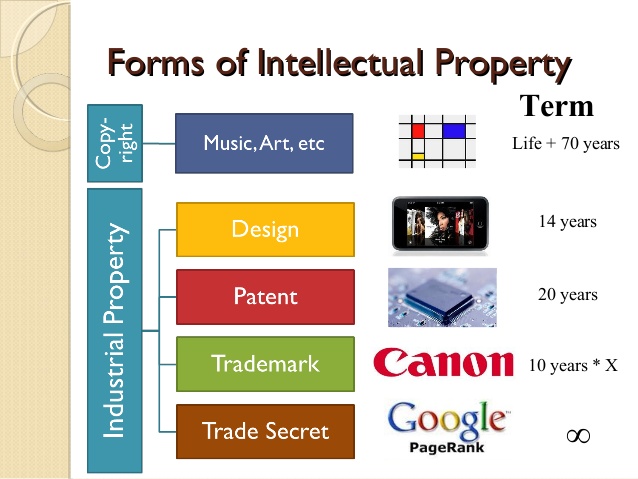 What I Learned: Patent Law Is Very Cool:
What I Learned: Patent Law Is Very Cool:
I suppose this is where I realized I should’ve done that Law degree in the end. Although I’m not all that interested in becoming a clerical lawyer or patent troll, I just think that what’s interesting is that you could make a clerical error and have a patent thrown out on the basis of some kind of filing mistake. I guess the other idea is that you can hide relevant information about how the chemicals work in the pharmaceutical product: You can make it is very difficult for third parties to actually replicate your product which is a requirement of a patent that it be made public. Of course, people like Barry Sherman kept things honest by contesting patent applications that were misleading.
Patent law is a fascinating area for me: Apotex will sue very aggressively on a regular basis. The reason being is that there might be some filing clerical error made. Another reason that you might contest a patent is that you believe there is prior art so on the one side patents are balancing the interests of the patent holder by ensuring that they are can protect their investment but then also make it relatively easy to contest a patent although the risks in terms of costs are significant in order to ensure that we have an honest patent system.
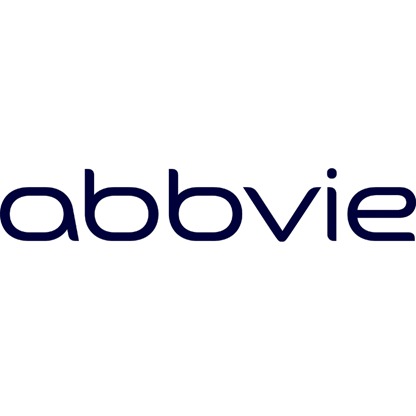 What To Do About It: The market will penalize the company for trying to do a deal that they haven’t done before:
What To Do About It: The market will penalize the company for trying to do a deal that they haven’t done before:
The tyranny of the stock market is a kind of check against poor CEO decision making. The classic example we had in class was around the deal that was made by Abbvie. It backfired because I know the deal that was done with Apotex where they granted them particular advantage and that was a bad move in this case. You can clearly see that that was a mistake after the fact and the CEO was fired but you could argue that Apotex was very effective and they basically destroyed the company.
When you’re doing a deal, you need to be careful because the stock market will respond and try to re-calculate the net present value of all future cashflows looking at the information they have in the marketplace. The stock investors are actually supposed to just make judgments on the stock price based on the available public information which they do but what I find quite interesting is that in the pharmaceutical industry in particular you have a very asymmetrical set of information internally in the organization that will hinder stock investors from understanding what the strategic vision.
 What I Learned: The Three ways to Affect the Timeline of a Pharmaceutical Company:
What I Learned: The Three ways to Affect the Timeline of a Pharmaceutical Company:
you can reduce costs, increase your revenue, or advance capabilities so these are the ways that you can grow your firm. The one thing I would like to draw attention to is the idea of building partnerships. Your firm is more valuable if you have partnerships and in fact the stock price will reflect that. So, if you are acquiring new companies and or creating networks with other companies. You can create the strategic position to lead in a particular subset of the pharmaceutical industry. That idea that your valuation is improved by building partnerships is one that I was not familiar with at all.
I think strategically I will try to work in areas of the company that our building partnerships and creating advantage through synergies with other players in the space. A key thing in the class has been the idea of capturing different parts of the value chain or having a holistic view of the value chain with in the pharmaceutical industry. So I think that your company is valuation will be significantly impacted by partnerships and that might be an area that I would focus and if I were to go after a pharmaceutical career.
 What I Learned: Opioid Crisis:
What I Learned: Opioid Crisis:
The Oxytocin crisis is very much a real crisis however we know that the situation is very challenging from the distribution folks at the McKesson. It certainly is critical in deploying the oxycodone to communities. Famously over 13 million pills were shipped to a town of only 1000 people . It should’ve triggered red flags but it didn’t at McKesson. So, there are a bunch of actors on the value chain. What was really great in class was having government, doctors and the pharmaceutical companies all 3+ considering how to tackle the opioid addiction situation. And what we concluded was that no one had direct responsibility and by shifting blame to others, everyone could wipe their hands of the responsibility. But we didn’t mention was that the individuals as patients need to take ownership over their own decision making. And in some cases shockingly it’s true that some patients actually intentionally want to have a great time and then leave this mortal world behind. As uncomfortable as that is to admit should we institute the death penalty for drug dealers? Perhaps it’s worth considering. The Philippines certainly has had a successful round of deterrence through death penalties. On second thought, the most affluent drug dealers will have the best lawyers in order to avoid the death penalty and the poorest drug dealers will have the worst lawyers and will get the death penalty. So that’s not a great solution….
The value chain….
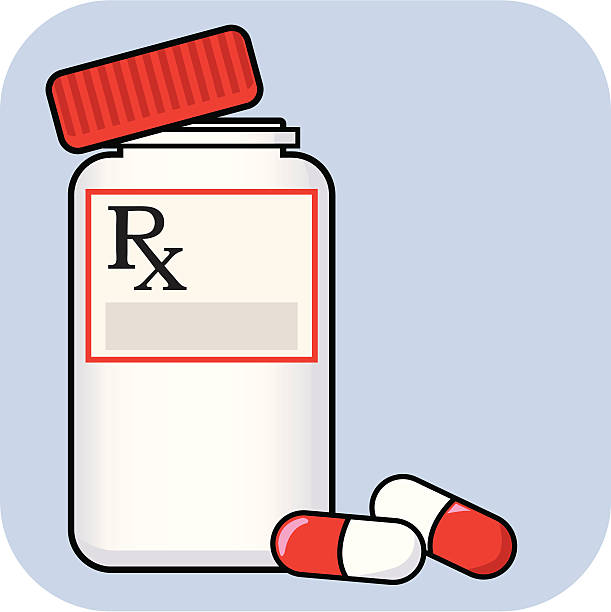
Pharmaceutical Companies
Distribution Companies
Doctors
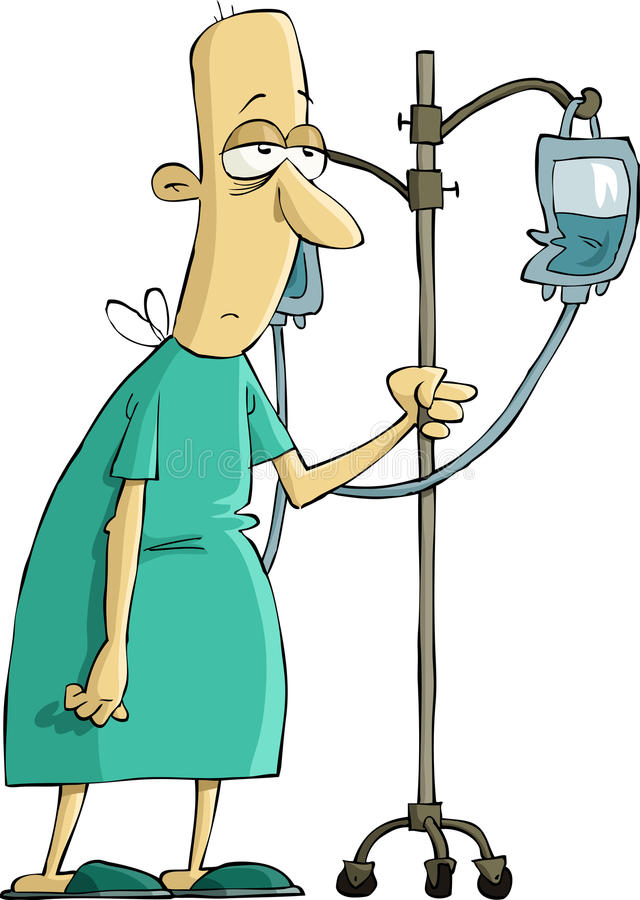
Patients
The opioid addiction crisis actually highlights the intellectual struggle that we have in academia. The thinking in terms of all actors is useful however the solutions aren’t happening because each actor in the system doesn’t (and cannot) take responsibility for the whole system. They only take responsibility for themselves and perhaps this is the reason why well-meaning government could actually solve for this problem. The only legal entity with the intellectual and systems-think is government. Government has a moral duty to step in when self-interested actors are show (through autonomous and anonymized data) that the greater good is being hindered. And that is why I will advocate in the future if I work in pharmaceuticals to advance the patients perhaps put some bonuses around proper patient success rates (avoiding perverse incentives) so that pharmaceutical companies can successfully generate revenue from doing what they are to be doing anyway.


